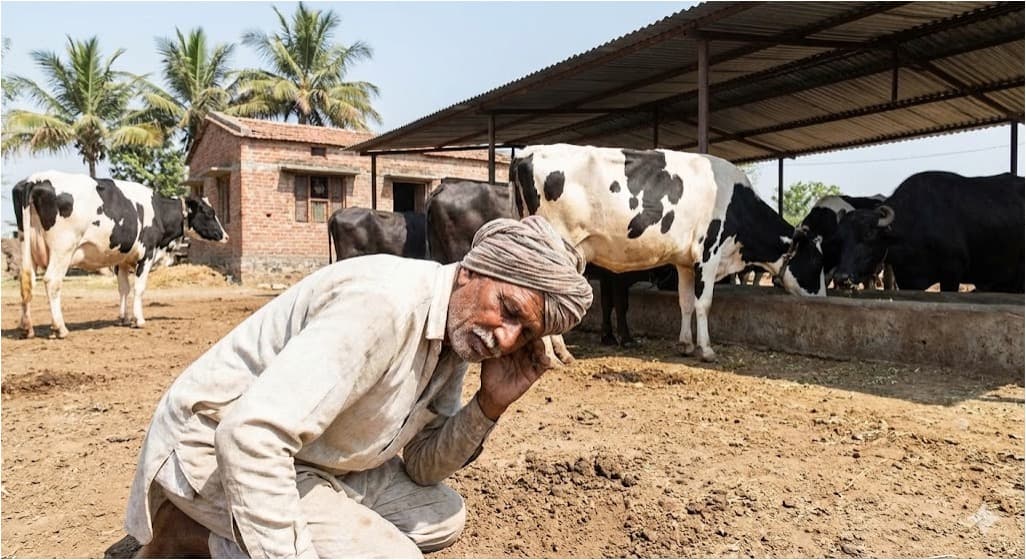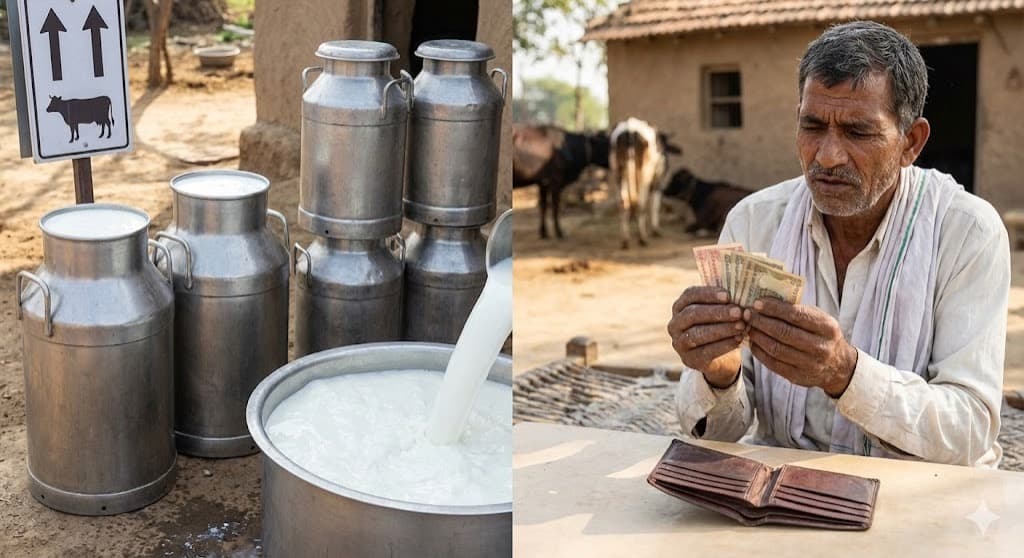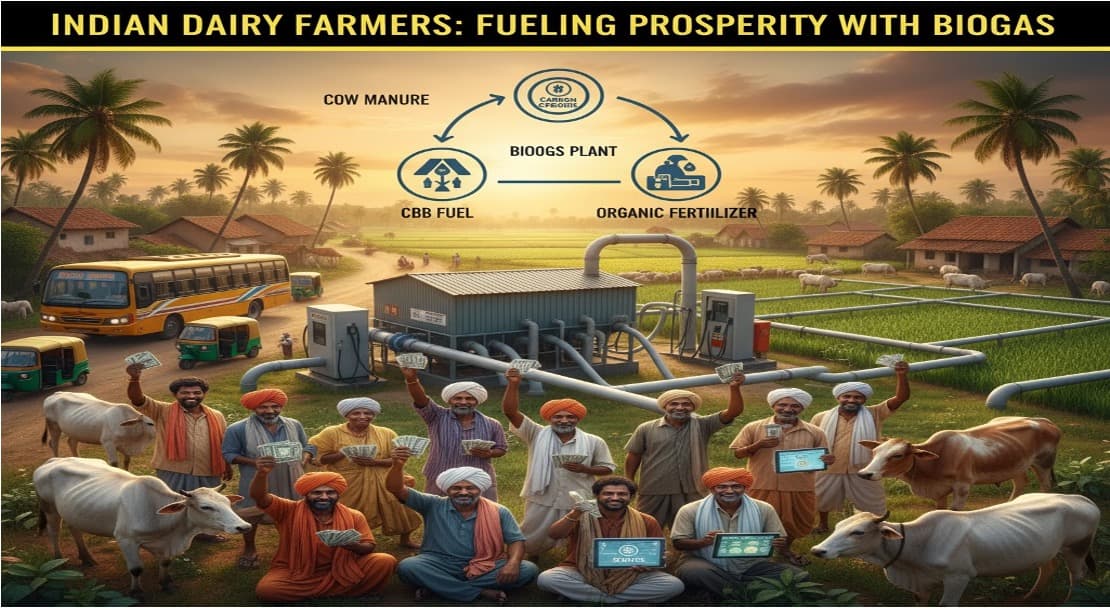Dairy Myth
A long-standing, prevalent belief champions dairy as the perfect food. While it may indeed be ideal for calves it is not the case for humans. The perfect food for humans is human milk, and that too only during infancy.
Humans are unique in two respects: (1) they continue milk consumption beyond infancy and (2) they consume the milk of another species. The origins of this practice are murky but it may have begun thousands of years ago during a famine. In desperate times consumption of cow’s milk, which led to survival, may have sparked the widespread domestication of cows.
This topic presents a personal conflict for me. Numerous doctors in the Plant-Based Whole Food (PBWF) movement advise against dairy, supported by a plethora of studies. However Ayurveda, an ancient Indian wisdom, endorses it, albeit sparingly. Most PBWF recommendations align with Ayurveda except for dairy products like milk and ghee.
All mammals nurse their young with milk specifically formulated for their offspring’s growth rate. For instance, a calf grows tenfold in six months, necessitating a milk composition rich in proteins, fats, and growth hormones like IGF-1. These components, while beneficial for calves, can potentially fuel cancer cell growth in humans without affecting normal cells, akin to how fertilizers promote lawn growth but also enable weeds to flourish unchecked.
Indian study on dairy protein
A groundbreaking study in 1967 by Dr. Gopalan and Madhvan at the National Institute of Nutrition in Hyderabad (India) examined the effects of dietary protein levels on cancer development. Mice, injected with a carcinogen and fed diets of varying protein levels, showed a direct correlation between high dairy protein intake and cancer growth. This study, which initially perplexed many, including Dr. Colin Campbell, laid the groundwork for a significant shift in understanding the relationship between animal protein and cancer.
Dr. Campbell’s subsequent research, including the comprehensive China Study, underscored the detrimental effects of animal proteins, particularly from dairy, on our health. These findings advocate for minimizing dairy and animal protein consumption in diets exceeding 8% total protein, especially in affluent societies with abundant food choices.
It’s important to recognize that dairy products do not cause cancer – they only contribute to its progression. The initiation of cancer is primarily due to gene mutations, which can result from a variety of factors such as radiation and toxic chemicals present in our environment. This suggests that cancer-causing agents were less prevalent in ancient times.
In scenarios of food scarcity, dairy protein can be considered a viable nutritional option. Historically milk likely played a crucial role during times of famine, potentially saving many communities from extinction. It is also worth noting that gene mutations caused by toxic chemicals and radiation were presumably less common in the past due to the limited presence of these harmful agents.
In 1967, the per capita milk consumption in India was 107 ml per person- today it has quadrupled to 427 ml per person. This increase occurred despite widespread knowledge of milk’s potential role in promoting health issues, including cancer. While the Government of India recognized Dr. Gopalan’s contributions with the Padma Bhushan award, his advice on this matter was not heeded.
Why Milk Today is Harmful Compared to the Past
Today’s dairy products differ significantly from those our ancestors consumed and we face different health challenges. Factors contributing to the harm caused by modern dairy include industrial farming practices, the genetic composition of dairy cows and the increased presence of environmental carcinogens. Additionally, lifestyle changes and increased life expectancy call for a reevaluation of dairy’s role in our diet. Here are some examples:
- Dairy cows are kept pregnant through artificial insemination.
- They are fed pesticide ridden food which is unfit for human consumption.
- They are injected with growth hormones to increase milk yield.
- They are injected with high-dose antibiotics to keep them infection free in otherwise poor unhygienic conditions.
Life expectancy in the olden days was low and an age of 70-80 was considered a life long lived. Very few lived beyond that. Today we are talking about increasing human life expectancy to 100+ years like in Blue Zones.
I have discussed this subject face to face with Dr. Colin Campbell, Dr. Caldwell Esselstyn, Dr. John Mcdugall and Dr. Michael Gregor. They all are against consuming dairy products. Dr. Collin Campbell did concede that if the total protein in a diet is less than 8% then milk may be okay to consume as long as it is procured from grass fed, free range cows.
Why Dairy Is Unhealthy?
Numerous studies and expert opinions highlight dairy’s potential health risks including its ineffectiveness in bone health, its link to cancer, and its contribution to various diseases and conditions. Widespread lactose intolerance further underscores dairy’s unsuitability for many. Here are some specific examples:
(1) There is no evidence that milk reduces bone fracture. In fact, there is evidence that suggests otherwise. Countries in Africa which have the lowest rate of milk consumption also have the lowest rate of osteoporosis. Conversely, countries consuming the most milk have the highest rate of hip fractures. A 2003 Harvard nurses study of 70,000 women for 18 years demonstrated that there was no protective effect on bone health among dairy consumers.
(2) Dairy consumption increases the body’s level of IGF-1 hormone and estrogens which are known cancer promoters and implicated with prostate and breast cancer risks.
(3) According to a 2006 study by Harvard researchers, conducted with 10,000 women aged 26-46, the women who consumed the most dairy products were at higher risk of breast cancer. Another 2014 study has shown that milk and dairy product consumption increases the risk of breast, lung and ovarian cancer.
(4) Additional growth hormones (synthetic Bovine hormones) injected in cows to increase milk production interfere with normal hormone functions in human body.
(5) Milk is one of the largest sources of dioxins which can affect the central nervous, immune and reproductive systems of the human body.
(6) Milk and cheese can cause acne.
(7) Dairy is full of saturated fat which is implicated in cardio vascular diseases.
(8) Dairy aggravates Irritable Bowl Syndrome.
(9) Dairy is a cause of autoimmune diseases like arthritis.
(10) Three fourth of the world population is lactose intolerant and genetically unable to properly digest milk. In most children after the age of five, the enzymes that help digest lactose decline, making them lactose intolerant.
(11) Dairy consumption in childhood is a leading cause of Type-1 diabetes.
(12) Dairy is also implicated in chronic constipation.
(13) Other problems associated with dairy include allergies and sinus issues.
(14) Milk can also increase men’s risk of having Parkinson’s disease. The main reason for this is that cows milk is contaminated with pesticides which cows consume with their grain fed diet.
Calcium Myth
Contrary to popular belief, the calcium in dairy is not efficiently absorbed due to its unfavorable phosphorus to calcium ratio. In order to absorb calcium one needs a calcium product that is conducive to absorption. The presence of phosphorus binds calcium to make calcium phosphate and biphosphate and diphosphate and makes it unavailable for absorption. To absorb calcium it must be available without phosphorus and milk does not provide that. So, for the most part, the calcium in the milk is in nonabsorbable. This is the reason why milk does not help people with osteoporosis. It even hurts them.
Giving calcium pills as supplement also doesn’t help people with osteoporosis. Calcium just goes through the body and is excreted. Even vitamin D supplementation does not help.
One has to do something to the bones to get calcium inside the bones. All the trials of supplementing calcium with vitamin D have failed.
Dr. Lustig of UCSF recommends giving calcium to phosphorus in ratio of 4:1 whereas in milk it is 1:2.
To achieve satisfactory calcium absorption other forms of calcium are required like calcium chloride or citrate.
Here are some additional comments that support PBWF doctors’ view against dairy.
- Many of my health group members have reported curing asthma, nasal congestion, seasonal allergies, digestive problems, constipation, and even headaches after giving up dairy.
- Dr. Neil Bernard filed a lawsuit against US government’s campaign “Milk Does the Body Good” and won. The advertisements had to be stopped by court order.
- The US government has been recommending 3 glasses of milk a day in its dietary guidelines but these guidelines are politically biased and not based on science. Head of nutrition at Harvard School of Public Health was one of the most vocal critic of these guidelines and had called them “utterly ridiculous”.
- If one must consume some dairy, the least harmful products are ghee (butter oil), buttermilk, yogurt and kefir. One must find organic sources which are growth hormone (RBST) free. This hormone is banned in Europe, Canada, Japan, Argentina and Australia.
Despite its historical role in human nutrition, the evidence against dairy consumption’s health benefits is compelling. Alternatives to dairy, including plant-based milks and yogurts, offer nutritious and safe options for those seeking to avoid dairy’s pitfalls. Acknowledging both the scientific findings and the cultural practices surrounding dairy consumption can guide us towards healthier dietary choices. Posted below are videos on how to make non-dairy milks, yogurts and butters. Also posted are talks by experts on the subject of Dairy.
10 Homemade Nut & Non Dairy Milks
Guide to Homemade Nut & Seed Butters
What The Dairy Industry Doesn’t Want You To Know
Is Milk Good For Our Bones
Plant vs. Cow Calcium
Dr. Colin Campbell: Why Dairy Proteins n Causes Cancer?









